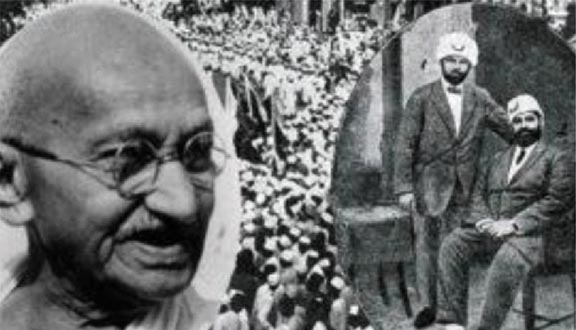Make no mistake; the Khilafat Movement has relevance because the mindset that set it in motion 100 years ago is still at work. Here’s first part of the series of articles on Khilafat movement
–Dr Shreerang Godbole

The Khilafat Movement (1919-1924) refers to the ferment among Indian Muslims consequent to the threatened dismemberment of the Turkish Ottoman Empire and the abolition of the Turkish Caliphate at the end of the World War I. The Khilafat Movement primarily sought the restoration of the Khalifa (lit. successor; religious and temporal head of global Muslims). The Khilafat Movement marks its centenary this year. A hundred years on, the movement continues to incite a debate. The Khilafat Movement was not an isolated historical event. It had the definite scriptural sanction and historical antecedents. When it was being played out, it impacted our freedom struggle and fast-tracked Partition. The Khilafat Movement continues to find resonance today.
Khilafat Movement and Non-Cooperation Movement
To most Indians, the relation between the Khilafat Movement and the Non-Cooperation Movement is obscure. Generations of Indians have been taught that Gandhi launched the Non-cooperation Movement on September 4, 1920 “with the aim of self-governance and obtaining full independence as the Indian National Congress (INC) withdrew its support for British reforms following the Rowlatt Act of March 21, 1919, and the Jallianwala Bagh massacre of April 13, 1919.” This is the information provided by Wikipedia, the repository of wisdom for most modern literates!
Party ideologues posing as historians have taught impressionable minds that “Gandhiji hoped that by coupling non-cooperation with Khilafat, India’s two major religious communities, Hindus and Muslims could collectively bring an end to colonial rule. These movements certainly unleashed a surge of popular action that was altogether unprecedented in colonial India (Themes in Indian History Part III, Textbook of History for Class XII, published by NCERT, p.350). If one reads the official history of the Congress, one will be misled into thinking that the Non-Cooperation Movement was a brainchild of the Congress, launched to secure Swaraj (The History of the Indian National Congress, Pattabhi Sitaramayya, CWC, Madras, 1935, pp. 334, 335). If truth be the mother of history, the historian needs to examine if history is being turned on its head!
A hard but dispassionate look at the Khilafat Movement is in order. Truth has a way of getting blurred and even buried beneath false discourse. Often, this discourse is politically or ideologically motivated. The Khilafat Movement is no exception.
Real Reasons of outrage
- Feeling of Islamic brotherhood- Pan-Islamism
- Extra territorial loyalty of Indian Muslims
- Indian Muslims are not supportive of nationalism in their hearts
- Minority syndrome of Indian Muslims
- Imagined competition with Hindus














Comments